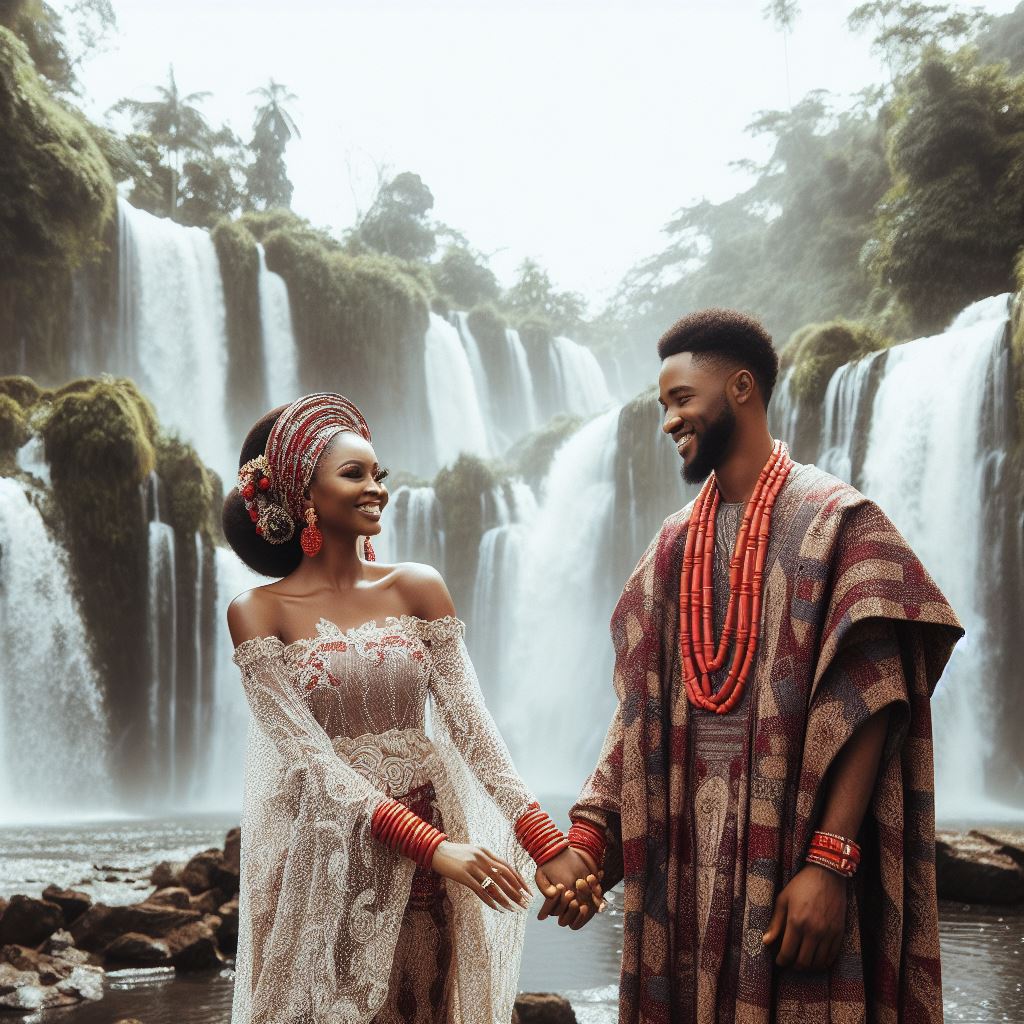Introduction
Let’s explore marriage counselling: Why it matters in Nigerian context.
Marriage in Nigeria is an essential institution that reflects the cultural values and traditions.
It’s the cornerstone of society, is a complex interplay of emotions, expectations, and commitments.
Marriage counseling plays a crucial role in ensuring the success and longevity of marriages in Nigeria.
In the vibrant tapestry of Nigerian culture, where traditions intermingle with modernity, the institution of marriage assumes an even more intricate significance.
It is within this rich context that the practice of marriage counselling emerges as a pivotal force for nurturing and sustaining healthy unions.
In recent decades, Nigeria has experienced rapid socio-cultural transformations.
These shifts, while bringing about unprecedented opportunities, have also introduced new dynamics and challenges to marital relationships.
The amalgamation of diverse ethnicities, belief systems, and economic backgrounds within the country has given rise to a mosaic of marital experiences, each with its own unique set of trials and triumphs.
Against this backdrop, the role of marriage counselling cannot be overstated.
It acts as a compass, guiding couples through the labyrinth of conflicting emotions, divergent expectations, and external pressures.
This proactive approach to marital well-being is not only a testament to the evolving nature of relationships in Nigeria but also a reflection of a society that values the sanctity of unions and seeks to fortify them.
This exploration delves into the intricacies of marriage counselling within the Nigerian context, shedding light on why it matters now more than ever.
By examining the cultural nuances, evolving societal norms, and the practical benefits of seeking professional guidance, we aim to illuminate the path towards healthier, more resilient unions in a rapidly changing Nigeria.
The Role and Benefits of Marriage Counseling
A. Definition of marriage counseling
Marriage counseling is an invaluable resource in the Nigerian context, where cultural norms and societal pressures can impact relationships.
B. Importance of seeking professional help
By seeking professional help, couples can overcome challenges and build a strong foundation for their marriage.
C. Benefits of marriage counseling in the Nigerian context
1. Strengthening communication skills
One of the primary benefits of marriage counseling is the opportunity to strengthen communication skills.
In Nigeria, where cultural taboos may discourage open discussion, many couples struggle with effective communication.
Marriage counseling provides a neutral environment where couples can learn active listening, assertiveness, and empathetic communication to express their needs and concerns better.
2. Resolving conflicts effectively
Another significant advantage of marriage counseling is its ability to assist couples in resolving conflicts effectively.
Disagreements and misunderstandings are inevitable in any relationship, but without constructive resolution, they may escalate.
Marriage counseling equips couples with conflict resolution strategies, enabling them to address issues calmly, find compromises, and prevent resentment from building up.
3. Enhancing intimacy and connection
Furthermore, marriage counseling plays a crucial role in enhancing intimacy and connection between partners.
In Nigerian culture, where emphasis is often placed on societal expectations and external pressures, couples may neglect their emotional and physical bonds.
Through counseling, couples can explore their desires, learn techniques to reignite passion, and create a deeper emotional connection.
4. Building trust and understanding
Building trust and understanding is another essential aspect of marriage counseling.
In a country like Nigeria, where trust can be eroded due to societal and cultural factors, couples may find it challenging to rebuild trust independently.
Marriage counseling provides a safe environment where partners can work on healing past wounds, rebuilding trust, and developing a shared understanding of each other’s needs.
In short, marriage counseling plays an integral role in the Nigerian context by offering a range of benefits.
From strengthening communication skills to resolving conflicts effectively, enhancing intimacy and connection, and building trust, seeking professional help can significantly improve marital relationships.
It is essential for couples in Nigeria to embrace marriage counseling as a tool for growth and betterment, ensuring lasting and fulfilling partnerships.
Cultural Factors that Influence Marriage Counseling in Nigeria
A. Role of traditional and cultural norms
- Traditional and cultural norms play a significant role in shaping the concept of marriage in Nigeria.
- Extended family and community involvement in marriage decisions is common in Nigerian culture.
- Marriage is seen as more than just a union between two individuals but also as a merger of families.
- The expectation of upholding cultural values and traditions puts pressure on marriages.
- These norms can impact the way couples seek and engage in marriage counseling.
B. Influence of religion on marriages and counseling
- Religion plays a central role in Nigerian society, and its influence extends to marriage and counseling.
- Most Nigerians are religious, with Christianity and Islam being the dominant religions.
- Religious teachings shape attitudes towards marriage, divorce, and conflict resolution.
- Couples may turn to religious leaders for guidance and counseling before seeking professional help.
- The role of religion in marriage counseling can both facilitate and hinder effective interventions.
C. Stigma associated with seeking professional help
- Seeking professional help for marital problems is often stigmatized in Nigerian society.
- Traditional beliefs may discourage couples from seeking external assistance, considering it a sign of weakness.
- The fear of being judged or facing discrimination further adds to the stigma associated with counseling.
- Lack of awareness and misconceptions about the purpose and benefits of counseling also contribute to the stigma.
- Overcoming this stigma is crucial to promoting healthy marriages and the well-being of couples.
In Nigerian society, cultural factors such as traditional norms, religious influence, and the stigma surrounding professional help shape the landscape of marriage counseling.
Understanding and addressing these factors are essential to provide effective counseling interventions and support for couples.
By respecting cultural values while promoting the benefits of counseling, it is possible to bridge the gap between traditional beliefs and modern approaches to marital issues in Nigeria.
Read: Financial Aspects of Marriage: A Nigerian Perspective
Marriage Counseling Services and Working with Experts in Nigeria
A. Overview of available counseling services
- Individual counseling: Experts provide personalized guidance to address specific issues within the marriage.
- Couples counseling: Therapists aim to improve communication, resolve conflicts, and strengthen the relationship.
- Family counseling: Focuses on resolving conflicts and improving relationships within the entire family unit.
- Group counseling: Provides a supportive environment where couples can learn from each other’s experiences.
B. Professional organizations and certifications in Nigeria
- Association for Marriage and Family Therapy in Nigeria (AMFTN): Promotes ethical practices and provides professional development opportunities.
- Nigeria Association of Clinical Psychologists (NACP): Offers resources, networking, and accreditation for psychologists specializing in marriage counseling.
- West African Association for Pastoral Studies and Counseling (WAAPSC): Focuses on integrating spirituality and counseling for couples in Nigeria.
C. The importance of choosing qualified counselors
- Expertise and knowledge: Qualified counselors possess the necessary skills and training to address complex marital issues.
- Ethical standards: Qualified counselors adhere to professional codes of ethics, ensuring confidentiality and unbiased guidance.
- Cultural sensitivity: Trained professionals in Nigeria understand the cultural nuances and specific challenges faced by couples.
- Experience: Experienced counselors have encountered a wide range of issues and are better equipped to provide effective solutions.
D. Tips for finding the right marriage counselor in Nigeria
- Research and recommendations: Ask for referrals from friends, family, or trusted professionals in the field.
- Check qualifications: Ensure the counselor holds relevant certifications and memberships in professional organizations.
- Compatibility: Schedule an initial consultation to assess if the counselor’s personality and approach align with your needs.
- Specializations: Look for marriage counselors who specialize in areas relevant to your specific needs (infidelity, communication, etc.).
- Couples-friendly environment: Find a counseling center that offers a welcoming and comfortable space for both partners.
- Affordability: Consider the counselor’s fees and insurance coverage to ensure the services are financially manageable.
- Location and availability: Choose a counselor who is conveniently located and has flexible appointment slots to accommodate both partners.
- Trust your instincts: Ultimately, select a marriage counselor you both feel comfortable opening up to and trusting with personal issues.
Finding the right marriage counselor in Nigeria can greatly contribute to the success of your relationship.
The availability of various counseling services, coupled with professional organizations and certified experts, ensures access to qualified help.
It is crucial to choose a counselor who possesses the necessary skills, follows ethical standards, and has the knowledge to address your specific marital issues.
By considering tips such as researching, checking qualifications, and assessing compatibility, you can find a counselor who resonates with your needs.
Remember, a healthy and fulfilling marriage is worth investing time and effort into professional guidance.
Read: Marriage and Religion: The Interplay in Nigerian Society

Case Studies and Success Stories
A. Real-life examples of couples who benefited from marriage counseling
- John and Sarah: John and Sarah had been married for 10 years and were on the verge of divorce. Through marriage counseling, they learned to communicate effectively and resolve conflicts, saving their marriage.
- David and Jane: David and Jane were struggling with infidelity issues. With the help of a marriage counselor, they were able to rebuild trust and establish boundaries, leading to a stronger and more committed relationship.
- Michael and Tina: Michael and Tina had frequent arguments and felt distant from each other. Attending marriage counseling sessions helped them understand the root causes of their issues and develop strategies to reconnect emotionally.
B. Lessons learned and positive outcomes
- Improved Communication: Many couples who underwent marriage counseling reported that they learned effective communication techniques, such as active listening and expressing their needs calmly.
- Conflict Resolution Skills: Marriage counseling equips couples with essential conflict resolution skills, enabling them to address disagreements constructively instead of escalating into full-blown fights.
- Enhanced Emotional Connection: Couples often experience a renewed emotional connection after marriage counseling, as they learn to express their love, appreciation, and support for each other more openly.
- Strengthened Trust: Trust can be damaged in a marriage due to various reasons. Marriage counseling helps couples understand the importance of trust and provides tools to rebuild and maintain it.
C. The relevance and effectiveness of marriage counseling in Nigeria
- Cultural Context: Marriage counseling addresses specific issues faced by Nigerian couples, taking into account cultural norms, values, and expectations.
- Demystifying Mental Health: Marriage counseling plays a crucial role in destigmatizing mental health issues in Nigeria, encouraging couples to seek help without shame or judgment.
- Promoting Healthy Relationships: Marriage counseling promotes healthy relationship dynamics, breaking harmful patterns and fostering mutual understanding and respect.
- Preventing Divorce: By equipping couples with the necessary tools and skills, marriage counseling aims to prevent divorce and promote long-lasting marital satisfaction.
In fact, case studies and success stories demonstrate the positive impact of marriage counseling in Nigeria.
Through real-life examples, we see how couples benefit from professional guidance, resulting in improved communication, conflict resolution skills, emotional connection, and trust.
The relevance and effectiveness of marriage counseling in the Nigerian context lie in its ability to address specific cultural challenges, demystify mental health, promote healthy relationships, and prevent divorce.
Read: The Role of Extended Family in Nigerian Marital Life
Find Out More: Blurring Lines: When Reality TV Mimics Nigerian Cultural Practices
Overcoming the Challenges of Marriage Counseling in Nigeria
Marriage counseling is an invaluable resource for couples facing difficulties in their relationships.
However, in the Nigerian context, there are several challenges that need to be overcome to fully embrace the benefits of counseling.
A. Addressing cultural barriers and misconceptions
Recognizing and acknowledging the influence of cultural beliefs on attitudes towards counseling can help in breaking down barriers.
Traditional Nigerian values often prioritize privacy and discourage sharing personal problems outside the family.
This mentality needs to be challenged to create an accepting environment for counseling.
Encouraging open conversations about cultural differences can foster better understanding.
By promoting dialogue, it becomes easier to address misconceptions and increase acceptance of counseling as a helpful tool for strengthening marriages.
This can be done through community events, workshops, and even media campaigns.
B. Educating the society about the benefits of counseling
Promoting awareness campaigns to highlight the positive impact of counseling on relationships is crucial.
Many Nigerians may not be aware of the effectiveness of counseling in resolving conflicts, improving communication, and rebuilding trust.
By disseminating information through various channels, such as social media, radio, and television, more people can be reached and educated about the benefits.
Sharing success stories of couples who have sought counseling can inspire others to seek help.
These stories can be featured in magazines, online platforms, or even shared during community gatherings.
Hearing about real-life experiences can break down skepticism and encourage individuals to consider counseling as a viable option.
C. Normalizing the process and debunking myths
Emphasizing that seeking counseling does not imply weakness but instead shows strength is essential.
Many Nigerians believe that seeking outside help is a sign of failure or incompetence.
It is crucial to dispel this misconception and highlight that seeking assistance is a courageous step towards growth and improvement.
Educating individuals about the confidentiality and professionalism of counselors can alleviate concerns about privacy.
Some Nigerians may fear that their personal problems will be exposed or shared with others.
Moreover, by promoting the ethical standards and confidentiality practices of counselors, the stigma associated with counseling can be reduced.
Overcoming the challenges of marriage counseling in Nigeria requires collective efforts from various stakeholders, including government bodies, religious institutions, and community leaders.
By addressing cultural barriers, educating the society, and normalizing the counseling process, more couples can benefit from the invaluable support provided by marriage counseling.
Read: Building Strong Marriages: Tips from Nigerian Couples
Conclusion
To recap, we have discussed the importance of marriage counseling in the Nigerian context.
It is vital to reinforce the significance of marriage counseling in Nigeria as it can prevent divorce and strengthen relationships.
I encourage individuals to consider seeking professional help through marriage counseling for healthier and happier marriages.




